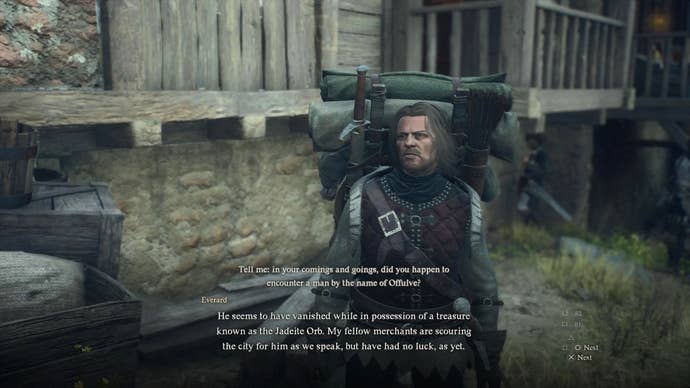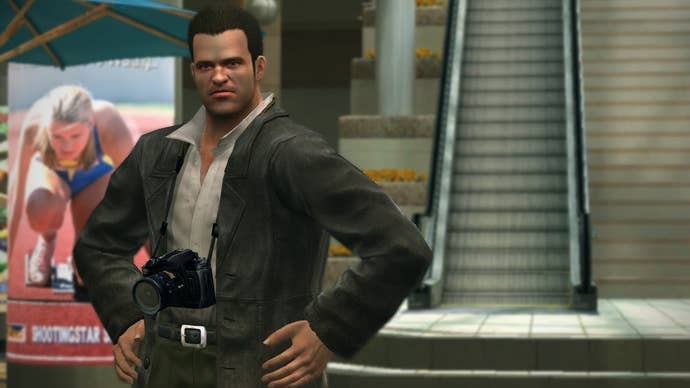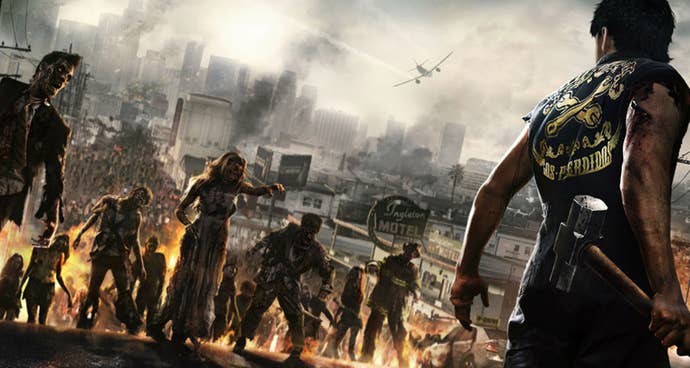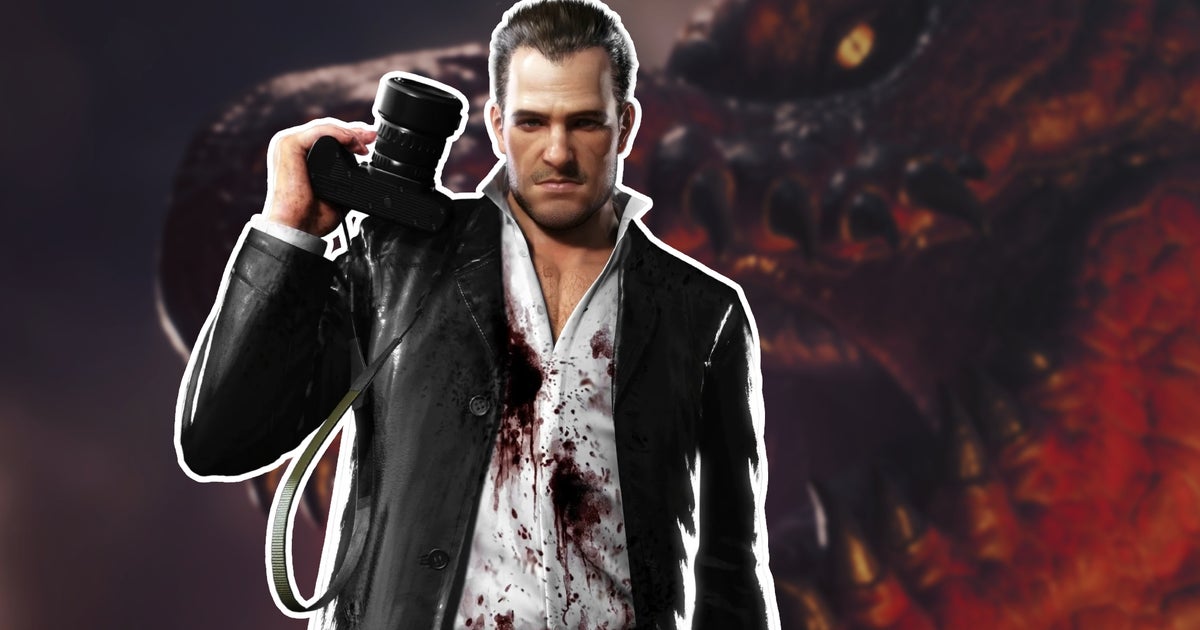Performance woes and silly balance-breaking cheat DLC be damned – Dragon’s Dogma 2 is bloody excellent. It’s a special game, for my money one most keenly defined by its willingness to cast a blind eye to more or less everything that has happened in the world of big-budget RPGs since the original game arrived back in 2012.
The result is a game that’s refreshingly prickly, gloriously hokey, and often utterly delighted by its own silliness – while playing it all with the straightest face. In many ways Dragon’s Dogma 2 feels like a game that fell out of that PS3/360 generation, just with a modern technology boost. Playing it makes me yearn for another Capcom series of that era. It’s time, of course, for a Dead Rising Reboot.
I actually reckon that DD and DR are bedfellows born of the same experimental mindset that clearly ran rampant at Capcom in the early part of the PS3/360 console generation. The similarities are superficial, but they’re also undeniably there – not just in both games’ use of Capcom’s MT Framework engine, but in an attitude to development. At a time when games were generally streamlining and shooting for an ever-lowering barrier of entry, the first Dead Rising and Dragon’s Dogma both didn’t mind being a little obtuse and difficult.
In Frank West’s zombie-smashing adventure this is best encapsulated by the delivery mechanism of the main story, where not managing to unravel the mysteries in time simply sees it… pass you by. “The truth has vanished into darkness,” the game’s menu would say. The main narrative at that point is over, but you could continue to noodle around in the game’s open-ended mall setting, free to learn about things like item placement and other survivors in order to better prepare yourself for a next, more successful run.
This is the sort of thing that games had already begun to abandon at this time. The Elder Scrolls 3: Morrowind famously featured the similar-functioning warning that the ‘thread of prophecy had been severed’ if the player let certain story-critical characters die, allowing players to continue role-playing in a doomed world – but by the time Oblivion released, the same year as Dead Rising, the series had done away with such critical failures, rendering vital characters unkillable – no matter the player’s will.

And so it has been for a few years. Dead Rising wasn’t immune to this, either. Where Dragon’s Dogma fans were made to wait 12 years for a true sequel, Dead Rising evolved in a trio of follow-ups. Each time, developers gingerly sanded the rough edges off its presentation and world. For the second and third games, the truth-vanishing story bad endings remained, but the required beats to prevent such an outcome became easier to hit and more clearly signposted. By the fourth game, the dead ends were removed entirely.
You can chart this across the four games – Dead Rising’s journey from a weird, esoteric little thing that nevertheless resonated widely to a game that was designed to be something more – an Xbox system seller, a ‘tentpole title’, which meant taking less risks. The series could no longer afford to be difficult, too quirky, or heavy on the player friction.
By the fourth game even 80s heyday Dan Aykroyd-esque protagonist Frank West, previously seen as a balding, washed-up, fame-starved loser, had received a handsome glow-up beyond what even Beverly Hills’ finest could’ve furnished. Frank himself became a poster child for the characterful and unique design that Dead Rising lost in the pursuit of mainstream plaudits.

In Dead Rising, we can in a sense see what very well may have happened if Dragon’s Dogma had been alighted on by a platform holder as the recipient of 3rd-party exclusive money, and if it had been chosen to receive a series of fairly rapidly-arriving sequels.
It probably would’ve homogenized with other RPGs of the time; a bit of Skyrim, a pinch of Dragon Age, an inevitable dash of Dark Souls 3. By a sequel being so delayed, that mercifully never materialized. Dragon’s Dogma 2 is the result; the wait was worth it.
Which only naturally leads my thoughts back to Dead Rising. Now, in fairness, I don’t think the latter games are bad. I enjoyed all four, albeit each less than its direct predecessor. That lessening of my love for the series correlates quite directly with the watering down of its essence. Playing Dragon’s Dogma 2 is proof that such an essence can exist successfully in 2024 – and it therefore makes one beg for Dead Rising to be given another chance.
Arguably what has happened is simple: Dragon’s Dogma was ahead of its time. Games and trends since have arguably primed the audience for such a game to finally receive the plaudits it deserves, which is why Capcom has been able to enjoy such success by to some degree simply remaking and expanding upon their 2012 title.

Things like the developer hands-off emergent joy of Breath of the Wild and FromSoftware’s unflinching willingness to make players suffer in the name of an overall vision have helped to manufacture a collective understanding and consent that games can, yes, be a little bit mean, boundlessly surprising, and definitely don’t need to be frictionless. Dragon’s Dogma 2 didn’t react to the trends, but the trends primed the world for Dragon’s Dogma 2.
And so it is that the world is ready for a Dead Rising reboot. The technology is there, proven in RE Engine’s ability to render creepy horror environments (as in Resident Evil), huge swarms of enemies (as in Exoprimal), and complex AI routines in a large-scale world (as in Dragon’s Dogma). But more than the technology, it feels like the vibe is right. The time is right. There’s something in the air.
It’s time for a new Dead Rising with a fairly uncharitable save and timer system, with a main narrative that can dead-end, and with a smaller-scale roguelike’s willingness to make you try it all over again. A game that makes you plan your timings for a perfect run with a Swiss watch precision, only to trip you up with boss fights that surprise in their ingenuity and cruelty. For a story that feels like it’s ending, only for the game to unravel a whole new world of possibilities at the last minute.

It’s time, in a way, for the real sequel to the first Dead Rising (or, perhaps, to the second). Or a flat reboot. Whatever form it takes – the time is right. And it could just be the perfect title to ensure Capcom’s practically incredible streak continues.

